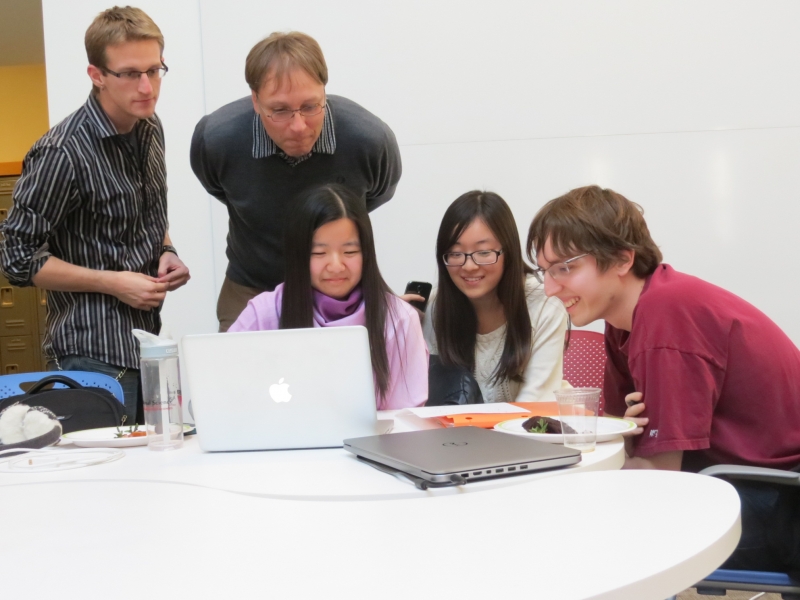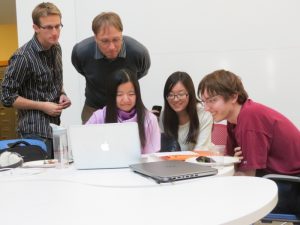
As part of January activities at MIT and at Harvard, two sets of classes brought students onto the MGHPCC systems to learn about computing technologies and about research areas that employ them.
Lincoln Labs Big-Data Class
The Lincoln Labs/MIT Beaverworks collaboration hosted a workshop focussed on next generation big-data environments that Lincoln researchers and their collaborators have created.
The class introduced a team of more than 30 students to a set of technologies that employ state-of-the-art database technologies being developed in the Boston area. These technologies include a new generation of massively scalable database systems, SciDB and Accumulo and an innovative data analysis framework D4M.
Lincon Labs senior scientist Jeremy Kepner, the originator of the D4M technology, developed the class, The class made extensive use of an installation of the Lincoln cluster computing environment LLgrid running on hardware at MGHPCC for student exercises and at scale demonstrations. The high-speed links between MIT campus and MGHPCC helped ensure that the class technology worked flawlessly throughout the intensive four-day event.
Plans are being developed to offer the course again later in the spring.
Harvard Computefest

For a fourth year, IACS and partner organizations offered skill- and knowledge-building activities for graduate and undergraduate students and the Harvard community during January. Image courtesy: Harvard School of Engineering and Applied Sciences
The Harvard Institute for Applied Computer Science (IACS) also made use of MGHPCC based resources for ComputeFest 2014, with more than 450 students participating.
Harvard Research Computing provided hardware and support for demonstration activities that illustrated the role of large scale computing in a wide range of modern research endeavors. Advanced technologies that students were able to learn about and try included the latest graphics based programming environments, tools for large-scale data analysis and tools for running large simulation models of complex systems.
The Harvard events exploited high-speed links to MGHPCC to give students access to the 50,000+ core system that Harvard Research Computing operates and to an NVidia GPU cluster system.
A number of Harvard research computing experts gave lectures on approaches to large-scale computing for science, engineering and humanities disciplines. James Cuff, assistant dean for research computing commented that “this was a great event for showcasing the power of large-scale computing in providing new perspectives and insights on problems spanning nearly all discipline areas that Harvard researchers encounter”.